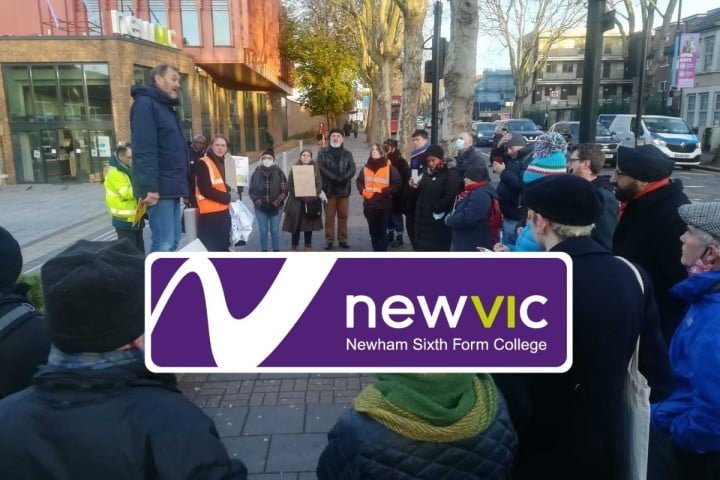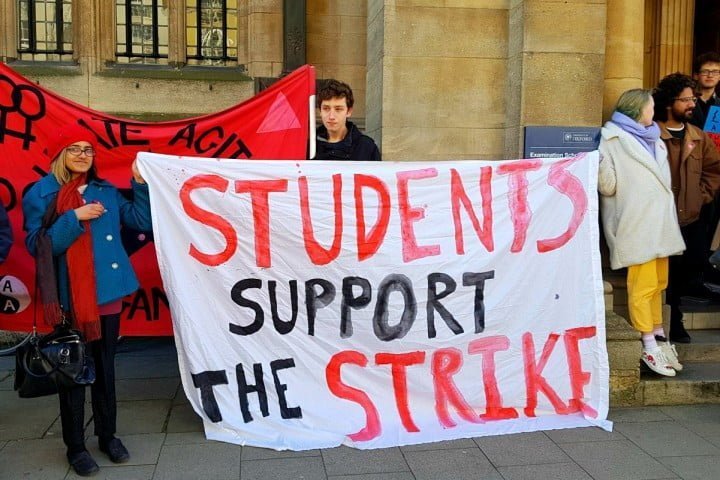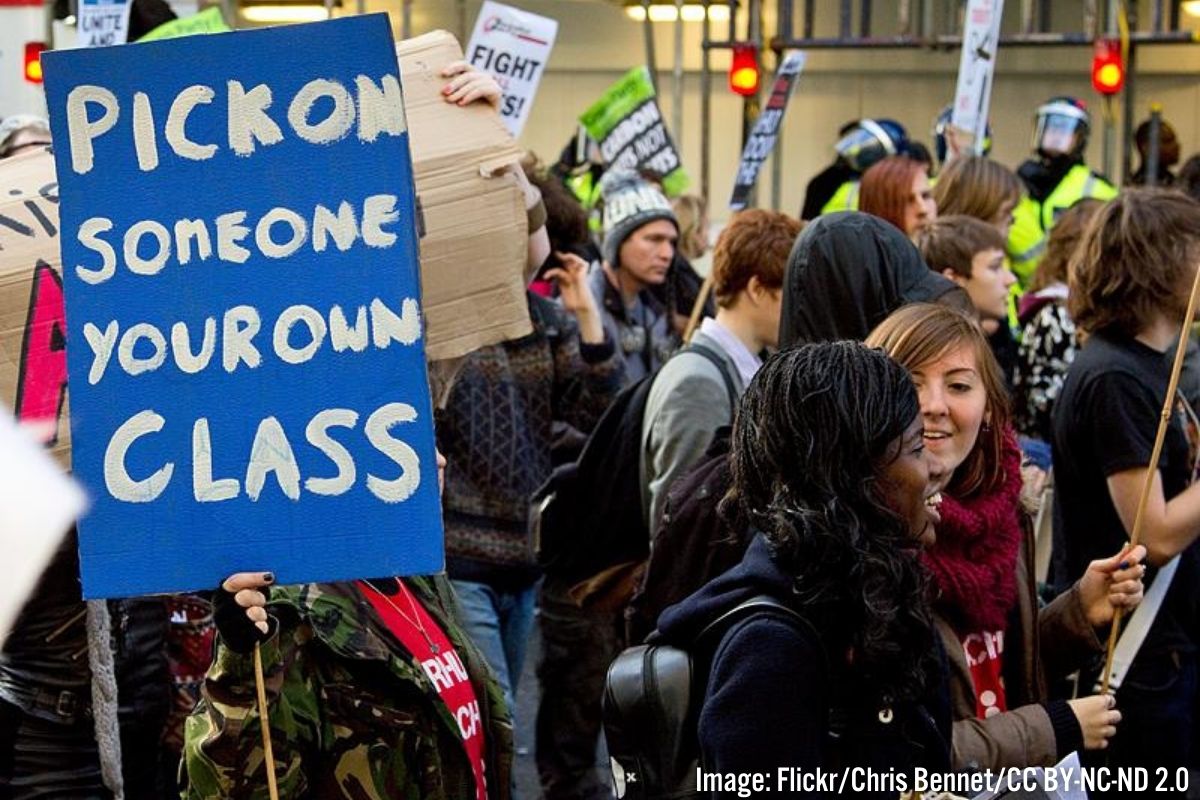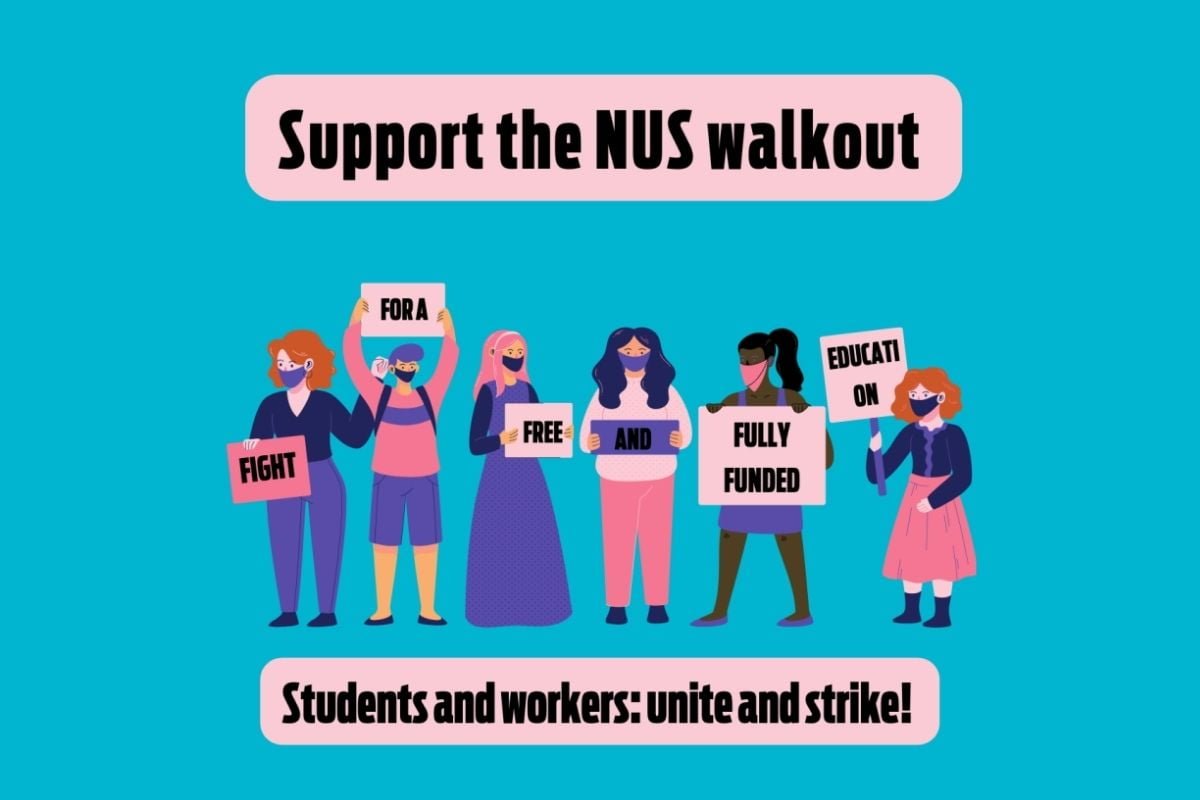The scene is set for potential united action across the education sector this term, with further strikes by UCU members in universities, and a planned national walkout of students called by the NUS. Activists must begin mobilising now.
The National Union of Students (NUS) has called for a nationwide day of action this term, on 2 March, involving a student walkout at universities across the country, and a mass demonstration in central London.
Students have faced a year of lockdowns, mental health crises, reckless decisions by university management, and eye-watering fees and rent. On top of this, we have a government that couldn’t care less about this situation, and who only make matters even worse.
Measures announced in Rishi Sunak’s Budget last October, for example, mean that university graduates will pay an effective tax rate of 50% on additional earnings, due to increased national insurance contributions and student loan repayments.
But it is not just students who are angry. Staff have been on the forefront of the battle against university management, with UCU members taking strike action three times in the last four years over pensions, pay, and conditions – most recently with three days of action last December.
The mood of anger on campus is palpable.
So graduates pay, for their education and ongoing professional training, and the infrastructure that society relies on, not to mention property prices, and the biggest companies profit. Well, thank goodness for capitalism.
— Gerri Hastings? ?? (@Gerbelean) December 30, 2021
Schools and colleges

These problems go beyond higher education. Further education has also been facing cuts for years. Spending levels per pupil have been dropping; meanwhile, schools are expected to produce better and better results.
In addition, NEU staff at various colleges have taken strike action in the last year against workloads and academisation, amongst other things.
Importantly, therefore, this NUS walkout includes students in further education.
We know from the climate strikes and other mass movements over the last few years that young people are becoming increasingly radicalised, and are looking to take to the streets. Recent events show that their teachers are too.
Rather than acting in isolation, this walkout provides an opportunity for staff and students across schools, colleges, and universities to unite in order to strike a decisive blow against the marketisation of education.
United struggle

As part of the 2 March national walkout, the NUS is putting forward the following four demands:
- Full funding: Higher and further education to be fully-funded by governments – free at the point of use for students – with proper pay, pensions, and conditions for staff across education and beyond.
- Accessibility: Creating safe and inclusive spaces, built for students here and now, and uprooting disablism in our education.
- Lifelong education: For a less restrictive, more fluid and flexible education system, which supports us from cradle to grave.
- Democracy: Giving students more power and agency over our own learning.
It is a great step forward for the NUS to organise such action, around such demands.
At the same time, the UCU is in the middle of balloting its members for further strike action this term.
If the NUS can seriously mobilise students to walkout at the same time as their lecturers are on strike, this will significantly strengthen both workers and students in their demands – laying the basis for a serious united mass struggle against marketisation.
Last December, students came out overwhelmingly in support of striking staff. As a result, solidarity networks and campaigns already exist in universities up and down the country. More than ever, the common interest that students and staff share has come to the fore.
Mass movement

In order for the walkout to be successful, we need to begin building for this properly now, to galvanise a mass movement of students and staff.
Local student unions and activists should set up mass meetings, involving as many students as possible, in order to discuss and vote on the fighting strategy and programmatic demands that we need to win.
These democratic mass meetings should draw up a battle plan for every campus. And committees of action should be set up, involving representatives from the trade unions and the student movement, in order to coordinate efforts across every town and city.
Student unions must spread information and provide resources (such as transport) to enable students to attend the national demo in London. And local activity and demonstrations should be called to build for the walkout, which in turn could pave the way for a wave of occupations across the country.
Free education

We call on all students and staff to join the walkout on 2 March. But a one-day walkout must only be the beginning.
Above all, the call for free education must be made loud and clear. Free education – funded by expropriation – is the only way to transform universities into genuine public institutions, free from the pressures of capitalist competition and private profit.
This must be combined with workers’ control, with students and staff democratically-running universities to ensure that our interests are met.
In all this activity, Marxist students will be making the case for these demands, and helping to build unity between students and staff. On this basis, we can organise a coordinated campaign across the whole education sector.
This could set an example for the rest of the labour movement – providing a platform for a one-day strike across the whole public sector, and a wider fight back against the Tories and the bosses.
We say:
- Build for the walkout! Sign up to support the student strike!
- Vote ‘Yes’ for strike action!
- Fight for free education!
- Students and workers: unite and fight!






